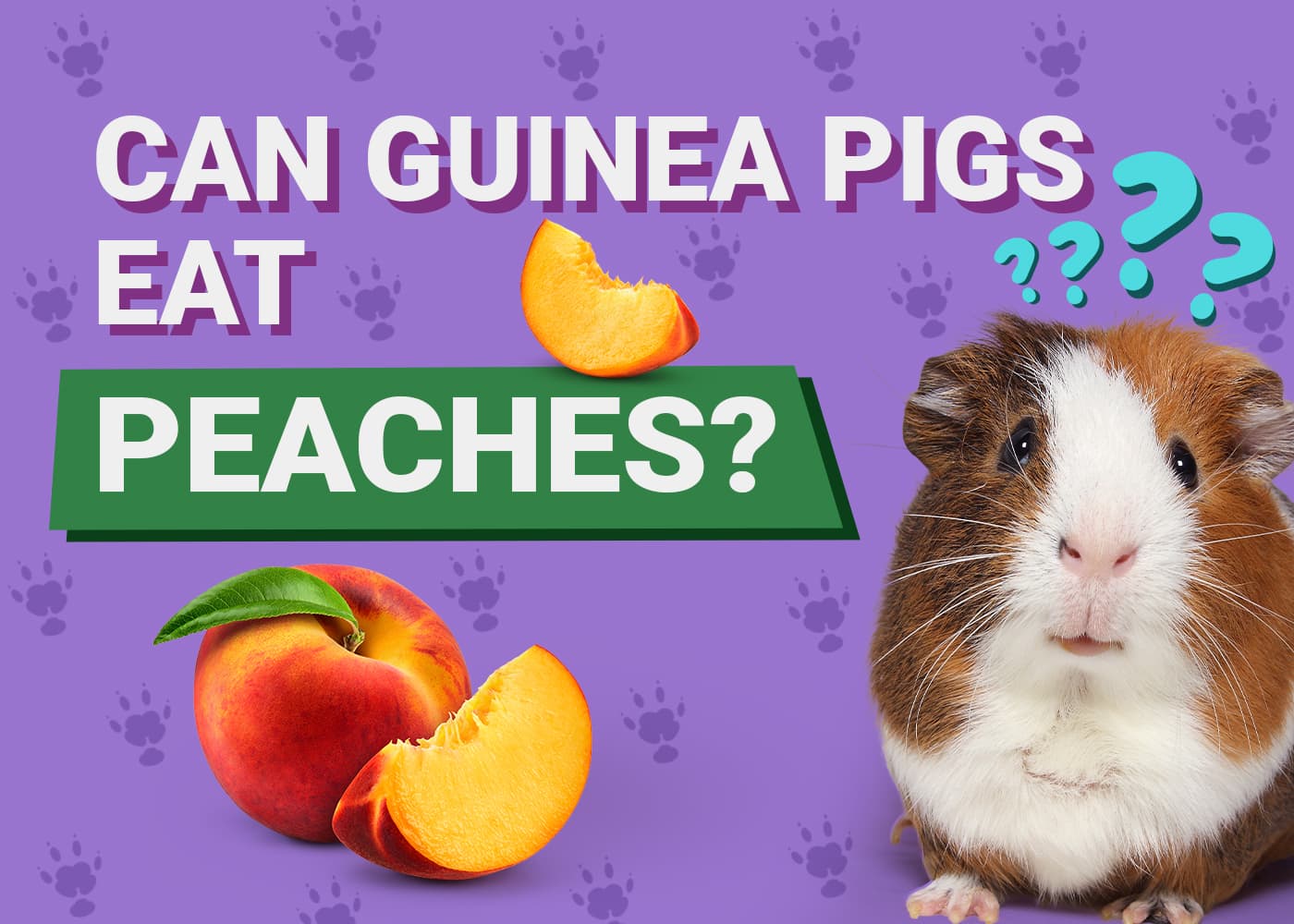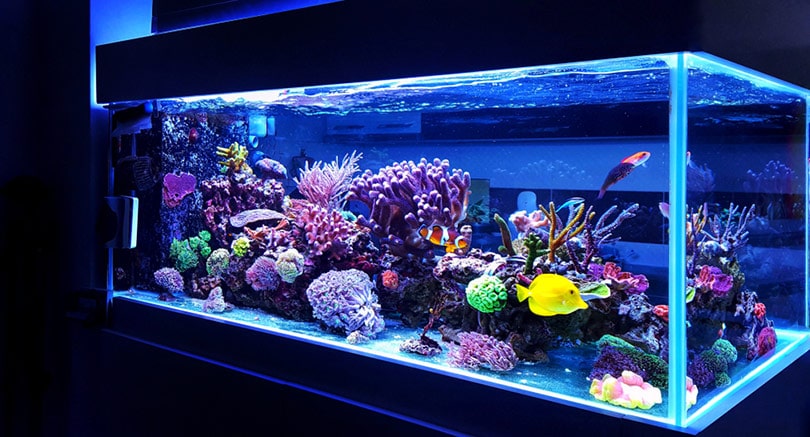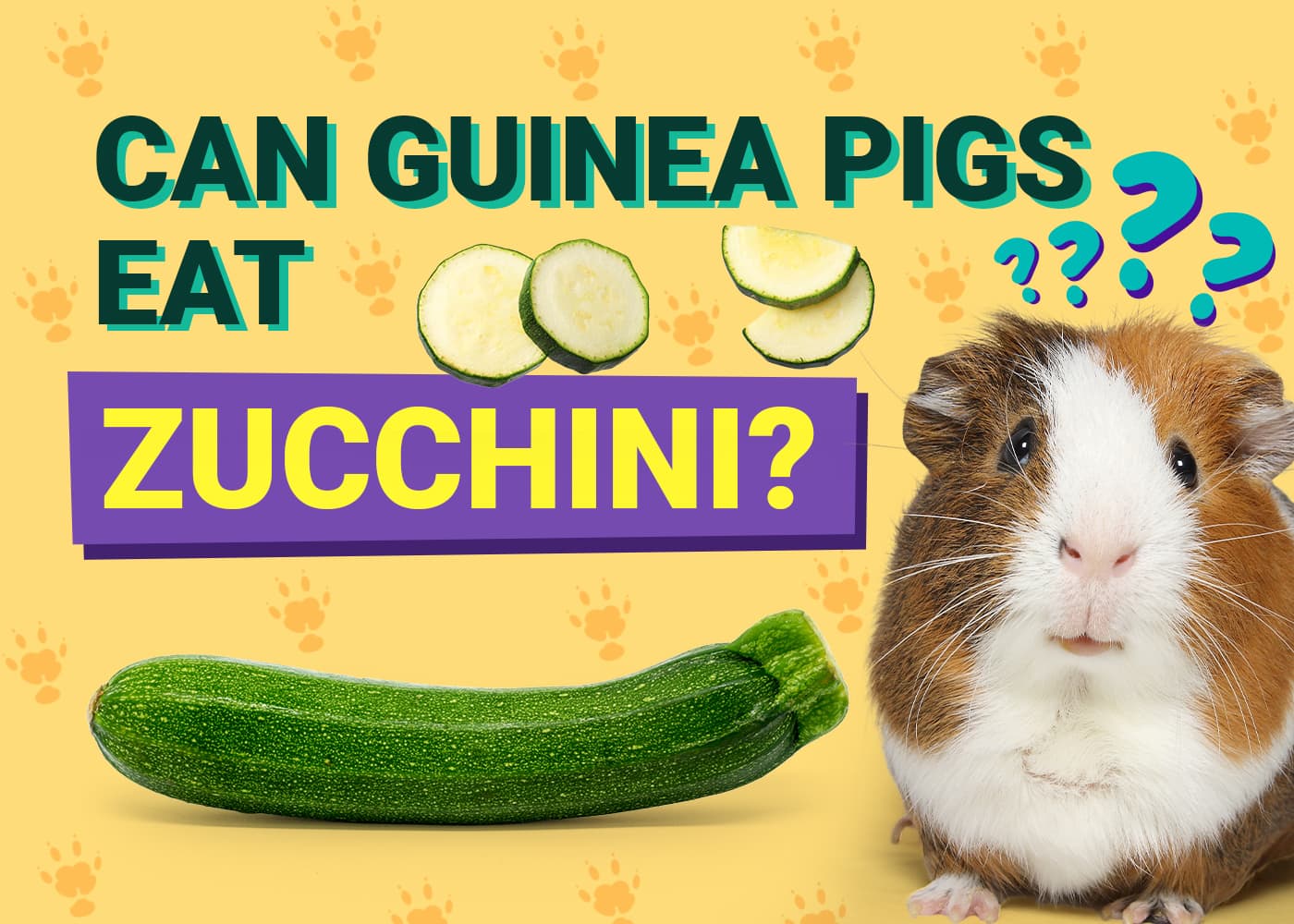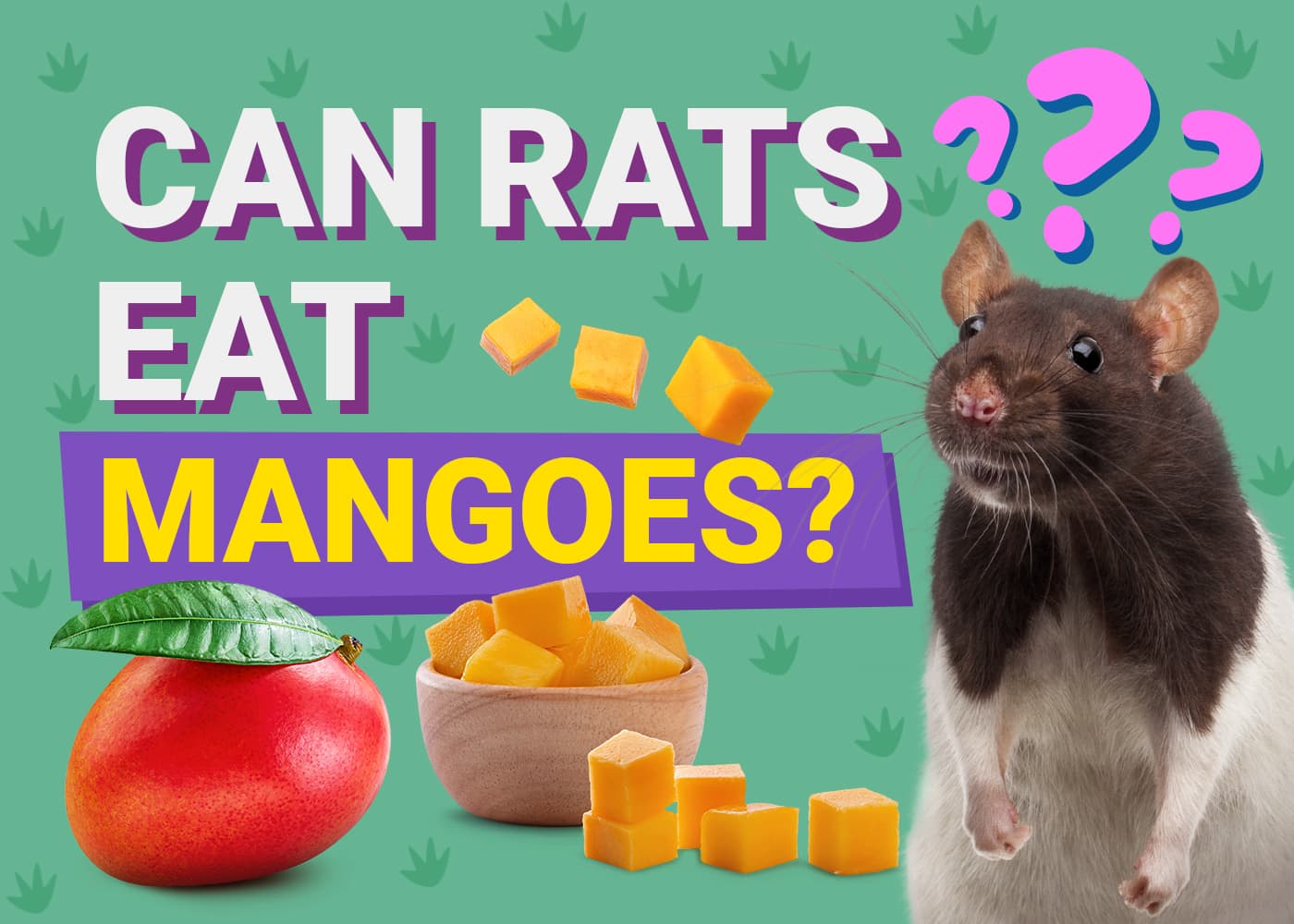VET APPROVED

The information is current and up-to-date in accordance with the latest veterinarian research.
Learn more »Click to Skip Ahead
If you’ve got some spare peaches, you may be wondering if it is okay to share them with your guinea pig. You’ll be glad to know that your fluffy friend can enjoy a few peach slices as a treat.
Although guinea pigs thrive on a diet that is mostly high-quality hay, a variety of dark leafy greens, veggies, and species-appropriate pellets, you can also eat small amounts of fruits like peaches from time to time. Be careful, though, just like with other fruits; you should limit how much peaches your piggy eats.
Keep reading for more significant insight on everything about peaches for guinea pigs.

What Are the Health Benefits of Guinea Pigs Eating Peaches?
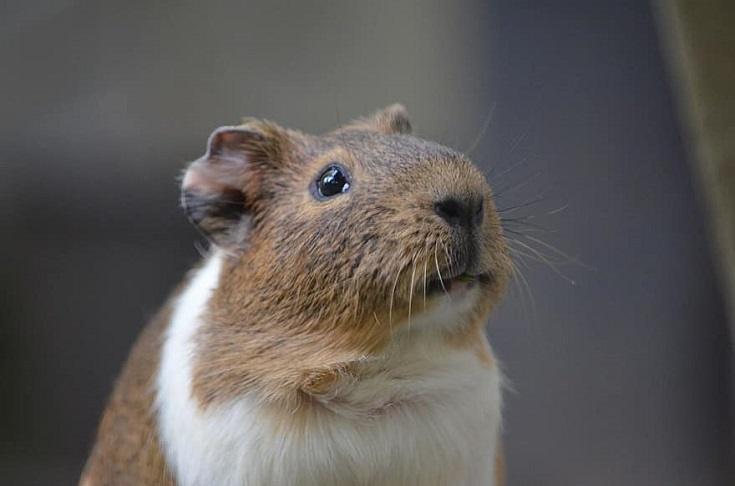
One thing about peaches is they are richly colored fruits and life-sustaining powerhouses for both guinea pigs and their owners.
1. Peaches Are High in Vitamin C
Just like humans, guinea pigs have a mutation that makes them not produce vitamin C naturally. For this reason, guinea pigs have to outsource this vital vitamin from the foods they ingest. Guinea pigs require about 10 to 30 mg of vitamin C every day, or they can develop scurvy, a lack of vitamin C.
Thankfully, peaches are a great source of vitamin C. This vitamin is essential because it helps maintain healthy cartilage, coat, fur, and cell function in the pet’s body. It also helps regulate body metabolism, aid in digestion, and supports the immune system.
Although peaches shouldn’t make the animal’s major vitamin C source, it is a fun and healthy treat.
The good thing is that peaches won’t cause any problem if you accidentally feed your piggy too much of it at first. After all, guinea pigs can’t produce or store the vitamin-meaning; the pet will eliminate the excess through urine.
2. They Are Rich in Antioxidants That Can Combat Oxidative Stress
Peach skin and flesh are packed with antioxidants, which help neutralize free radicals, protecting the pet’s body against diseases and delaying the aging process. Peaches contain the antioxidants caffeic acid and carotenoids.
You can allow your piggy friend to eat a tiny bit of peach skin as long as you buy organic peaches and wash them thoroughly to eliminate germs and bacteria.
3. These Fruits Contain Low Amounts Calcium and Phosphorus
Although calcium and phosphorus are vital minerals in any animal’s body, high doses of these nutrients can harm the animal.
Peaches have little calcium and low phosphorus levels, making them safe for your piggy to eat. Since most pet store snacks pack high amounts of these minerals, you can replace them with peaches as long as you feed only tiny amounts in moderation, as they are also high in sugar content.
4. Peaches Are Low in Fat
Unfortunately, guinea pigs are prone to obesity and heart diseases if they feed on excess fats from plants such as nuts. For this reason, these pets require a low-fat and high-fiber diet.
Their low fat and high water content, along with some fiber and antioxidants, make them a good occasional addition to a high-fiber, plant-based diet that supports your guinea pig’s health without contributing to unnecessary weight gain.
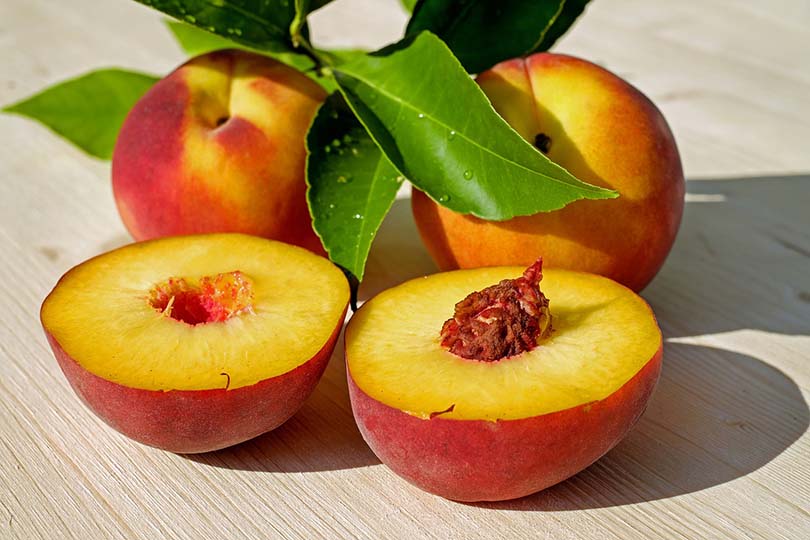
5. They Are a Source of Hydration
If you want to help boost your piggy’s fluid intake, use peaches. These fruits are refreshing and hydrating especially during warmer weather because they are 80 % water. You should however ensure your guinea pig has always a supply of clean fresh drinking water available.
6. This Fruit Is Rich in Nutrients
Peaches pass the test of being nutrient-dense fruits. Besides vitamin C, they have vitamin K, E, magnesium, manganese, folate, phosphorus, zinc, potassium, iron, niacin, and choline.
Also, baby guinea pigs can benefit from this composition plus the fruit’s calories can provide a gentle energy boost, but their primary nutrition must still come from hay, pellets, and vitamin C-rich vegetables.

Risks to Consider When Feeding Peaches to Guinea Pigs
1. High Amounts of Sugar
As much as peaches are safe for guinea pigs to eat, parents should not allow their pets to overfeed them because of their sugar content (about 9%).
Although it may not appear like a big deal for humans, it poses threats to guinea pigs. First off, pigs are intolerant to sugar, and their intestinal tract has trouble digesting such foods.
Too much sugar can also expose guinea pigs to weight-related issues like obesity and diabetes, especially since they are prone to weight gain.
2. High Amounts of Acid
Along with high sugar content, peaches are also acidic due to their citric and malic acid content, which can be irritating to a guinea pig’s sensitive mouth and digestive tract if fed in large or frequent amounts.
Overexposure to the natural acid in a peach fruit can cause mouth and lip sores and fungal infections, suggesting that peach should be more of an occasional treat than a primary meal.
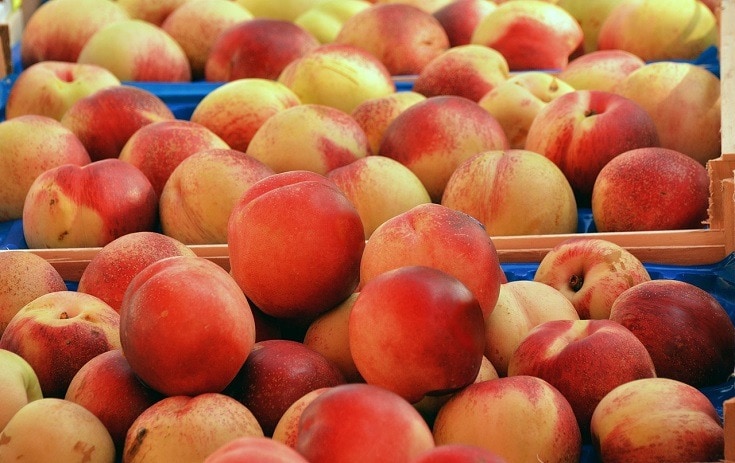
3. Chemicals
Although peach skin packs many antioxidants, this plant can harm your pet guinea pig if you don’t wash thoroughly beforehand. Unless you buy organic certified or grow peach fruits in your own garden and never spray with pesticides, it’s probably best to peel the skin off and only provide your pet the flesh.
It would still be best to wash these fruits thoroughly before feeding your pet, even if they are organic and from a reputable source. Any bacteria on the peach skin can infect your pet or affect its digestive system.

How Much Peach Is Safe for Guinea Pigs?
Fruits are considered treats and are not something a Guinea Pig would find or consume in their natural habitat, so consuming too much of this juicy fruit can lead to obesity and other health issues. Responsible piggy parents should set a strict limit on how much fruit their pets can eat.
How you introduce your pig to peaches depends on the pet’s activity levels, dietary needs, and underlying medical conditions. Avoid peach fruits if your guinea pig is on the chubbier side.
Introduce your animal to peaches bit by bit every week to allow it to adjust to the new food. Once it does, it is safe to feed it a few slices a week.
You should also serve depending on age, as young guinea pigs require small sizes while the adult can get a chunkier portion.
One last thing, please never offer the seed in the peach to your pet. Peach pits contain cyanogenic compounds (cyanide), which are toxic. Always remove the pit and offer only the soft, ripe flesh.
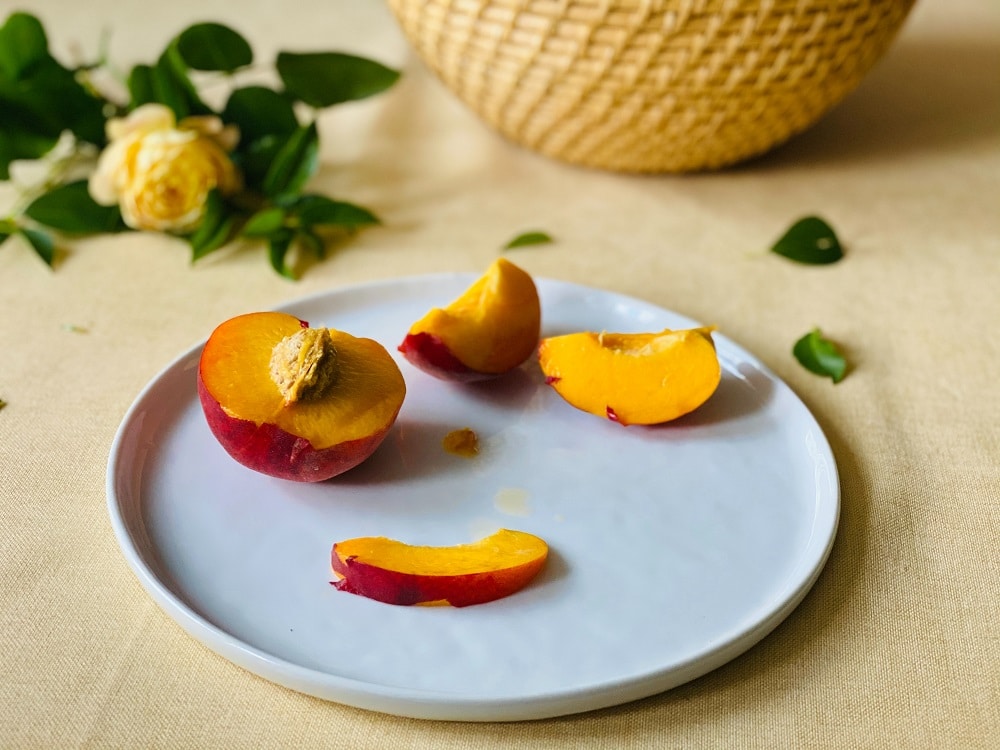

Final Thoughts
Establishing a safe diet for guinea pigs can be difficult since they can be picky eaters. However, almost all guinea pigs crave peaches, and it is safe to offer them these fruits. Remember that moderation is key, and sweet treats like peaches should make up no more than 5% of your pet’s overall diet.
Find out more about food safety for your guinea pig:
